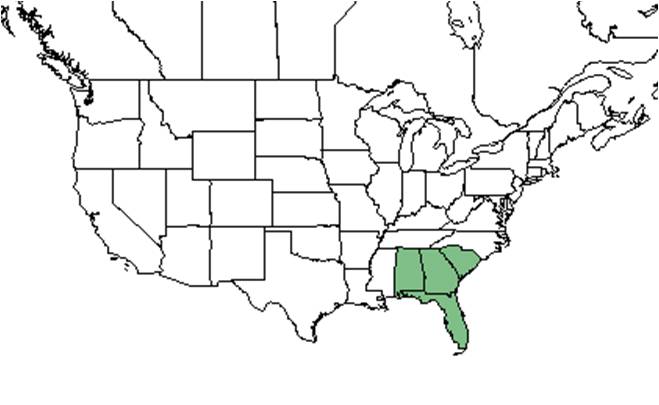Difference between revisions of "Paronychia americana"
KatieMccoy (talk | contribs) |
KatieMccoy (talk | contribs) |
||
| Line 30: | Line 30: | ||
===Phenology=== <!--Timing off flowering, fruiting, seed dispersal, and environmental triggers. Cite PanFlora website if appropriate: http://www.gilnelson.com/PanFlora/ --> | ===Phenology=== <!--Timing off flowering, fruiting, seed dispersal, and environmental triggers. Cite PanFlora website if appropriate: http://www.gilnelson.com/PanFlora/ --> | ||
| + | Flowers March through May and September (FSU Herbarium). | ||
| + | |||
===Seed dispersal=== | ===Seed dispersal=== | ||
===Seed bank and germination=== | ===Seed bank and germination=== | ||
Revision as of 19:32, 12 November 2015
| Paronychia americana | |
|---|---|
Error creating thumbnail: Unable to save thumbnail to destination
| |
| Scientific classification | |
| Kingdom: | Plantae |
| Division: | Magnoliophyta - Flowering plants |
| Class: | Magnoliopsida – Dicotyledons |
| Order: | Caryophyllales |
| Family: | Caryophyllaceae |
| Genus: | Paronychia |
| Species: | P. americana |
| Binomial name | |
| Paronychia americana (Nutt.) Fenzl ex Walp. | |

| |
| Natural range of Paronychia americana from USDA NRCS Plants Database. | |
Common name: American nailwort
Contents
Taxonomic notes
Description
A description of Paronychia americana is provided in The Flora of North America.
Distribution
Ecology
Habitat
Paronychia americana can occur in sandhills, sand pine scrubs, turkey oak woods, wiregrass savannas, and grassy recreation fields (FSU Herbarium).
Phenology
Flowers March through May and September (FSU Herbarium).
Seed dispersal
Seed bank and germination
Fire ecology
Pollination
The following Hymenoptera families and species were observed visiting flowers of Paronychia americana at Archbold Biological Station (Deyrup 2015):
Halictidae: Lasioglossum nymphalis, L. placidensis
Vespidae: Leptochilus krombeini
Use by animals
Diseases and parasites
Conservation and Management
Cultivation and restoration
Photo Gallery
References and notes
Deyrup, M.A. and N.D. 2015. Database of observations of Hymenoptera visitations to flowers of plants on Archbold Biological Station, Florida, USA.